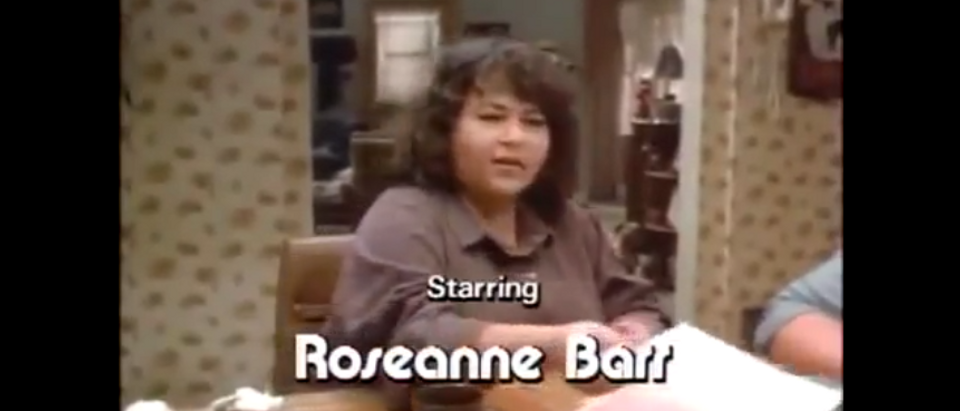If The Cosby Show helped pave the way for Barack Obama’s election, then it might also be said that the groundbreaking show Roseanne was a harbinger for Donald Trump’s candidacy.
Just as Trump is an overreaction to Obama-ism, Chuck Klosterman argues, Roseanne was “an inverted mirror of The Cosby Show: If The Cosby Show was an attempt to show that black families weren’t necessarily poor and underprivileged, Roseanne was an attempt to show how white families weren’t necessarily rich and functional.”
Peak nostalgia takes about two decades; Roseanne ran from 1988 to 1997, which means it ended about twenty years ago. The Cosby Show aired from 1982-1992 (both groundbreaking shows ran close to a decade), which means it ended about sixteen years before Obama’s election. The timing of both shows is similar.
A few important notes: A distinction must be made between Barr’s stated political philosophy (she ran for president on the Green Party ticket) and her actual cultural impact. What is more, she has had positive things to say about Donald Trump and plenty of nasty things to say about Hillary Clinton. Additionally, it’s important to acknowledge that Bill Cosby’s stock has dramatically declined in recent years, but this doesn’t retroactively diminish the impact his show had on changing attitudes in the 1980s and 90s.
So how does Roseanne set the table for Trump?
First, it’s probably fair to say that the show’s impact isn’t fully appreciated today. But Klosterman calls it “the most realistic interpretation of contemporary life as portrayed by a TV show,” and he’s not wrong, especially if you’re talking about the “contemporary life” of a Trump voter.
The setting was a blue-collar factory town (the fictional Lanford, Illinois). One can certainly be working-class without being crass and vulgar, but what Roseanne did was glamorize being “white trash.” When Donald Trump boasts about loving the poorly educated, he’s tapping into this ethos.
Roseanne taps into some traditional cultural themes (for example, Dan and Roseanne Connor are married and really seem to love one another), but the show mixes that traditional relationship with what might be seen as discordant and subversive values. They are culturally “conservative” in the same way Trump’s fans are conservative; they are white, drive motorcycles, eat fast food, and celebrate their status as regular (non elite) anti-intellectual Americans. (These cultural signals have replaced philosophy as signifiers of conservatism.)
Like Trump, the real Roseanne Barr’s (it’s hard to separate the eponymous show from the comedian) actual ideology is hard to peg. Despite being famous, she has preserved a populist worldview, or, at least, image. As Jessica Grose wrote at Slate, “The liberal lamestream media is out to get her, liberal feminists are exclusive snobs, and it’s up to her to reclaim the term ‘feminist’ for a broader range of women. Roseanne … shares [Sarah] Palin’s distrust of the stereotypical hypereducated, upper-middle-class feminist.”
Interestingly, like Trump (and unlike traditional social conservatives), Roseanne was very pro-gay. One could argue that the show did more to normalize the way gays are portrayed on TV (and thus, understood by the mainstream culture) than any other show in history.
So what we have here is a show that scrambled the paradigm. The Connors were traditional is some ways, progressive in others. Kind of like Donald Trump.
I don’t want to make too much out of this comparison. It is likely that The Cosby Show was more of a catalyst for positive change, while Roseanne was more of a reflection of the coming moral and economic collapse of the white working-class.
Culture is upstream from politics, and politics will eventually adopt the values normalized on TV. Trump’s status as a reality show star should demonstrate that.
If Ward Cleaver could evolve into Cliff Huxtable, then it’s fair to suspect that Cliff Huxtable can metastasize into Roseanne Barr. If you want to know what the future of politics will be, just take a look at what’s entertaining us today.


